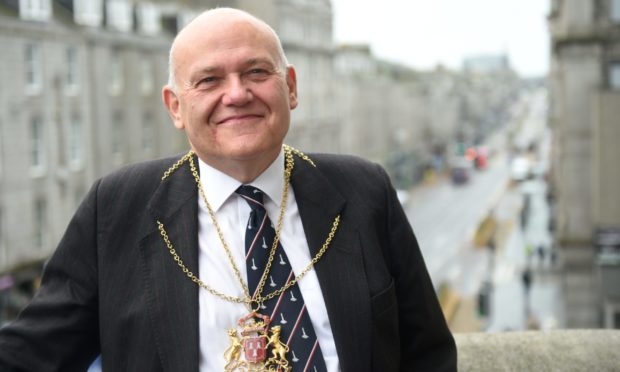The mayor of an English town, described as Little Scotland, says residents still feel a “strong connection” to their northern roots – as his Aberdonian counterpart says there is plenty to learn from them as the city moves towards a low carbon future.
Corby benefitted from thousands of Scots – mainly from the north-east and the west – migrating to the new town for work in the steel industry in the 1950s.
Such was the cultural impact of the mass movement that the town’s Grampian Social Club still boasts prize-winning country dancers and pipe bands, there are annual Highland Games, and football fans spur their Corby Town on with mention of our culinary delights: “Scotch pie, Irn Bru, come on Corby, give us two!”
Indeed, it is matter of parliamentary record that supermarkets in the former steel town sell 17 times the volume of the phenomenally fizzy orange drink – perhaps as it is made from girders – than anywhere else in England.
But, approaching seven decades on from the huge Scots invasion, Lord Provost of Aberdeen Barney Crockett thinks it could be time for the Granite City to learn a trick or two from the Northamptonshire settlement.
After the steelworks was closed in 1979, 11,000 jobs were lost – leaving nearly a third of all people in Corby without a job.
“At one point, it was the most distraught place in England – it had many social problems and high unemployment,” Mr Crockett said.
“Corby has reinvented itself as a major centre for distribution as it is very well positioned in the East Midlands and has attracted small industries too.
“In the future we could build economic links, as well as others, as Corby is a great lesson in regeneration, having gone through a very hard time but back on its feet through good leadership.”
Mr Crockett believes as the north-east moves to position the region as the centre of low carbon energy sources – transitioning away from oil and gas – the city could do worse than looking down the road for an example.
The lord provost added: “I met the then-mayor when I visited in 2018 and had fruitful meetings with the key politicians in Corby and congratulated them on what seems to be one of the most significant regeneration tasks carried out in the UK.
“I wonder if that Aberdeen element in the town was helpful – the resilience and bouncing back that our city often shows.”
Mayor of Corby Lawrence Ferguson – who trades Christmas cards with Mr Crockett – has plenty reason to respect the historic ties too.
His grandfather John Wood-Cowling walked the 400 miles from Aberdeen to the town on the promise of a home and a well-paid job at the steelworks within a month of his arrival.
Mr Ferguson, who is mistaken for Scottish when elsewhere due to the Corby twang, said: “The Little Scotland thing is not as strong as when I was young – when it was wall-to-wall Celtic, Rangers and Aberdeen shirts. There is not as much of that now.
“But there still is a strong feeling, especially in the older generation, as I think around a third of people here have Scottish roots.
“I think Corby has always felt a little different to the other towns around us, there is a bit of a Scottish accent still here – it feels like we are our own little republic.
“We have our own traditions, we all drink Irn Bru and have a more Scottish sense of humour – we are all very proud of it.
“Thousands and thousands of Scots came here for housing and good jobs in the steelworks, blowing the village up to a town basically overnight.”
In 1996, Mr Ferguson watched as his grandfather was installed as mayor and 24 years on he knows he will be the town’s last, as an administrative shake-up will dissolve the authority he heads-up.
Come April, it will be swallowed up in the rejig prompted by the bankruptcy of the Northamptonshire County Council.
